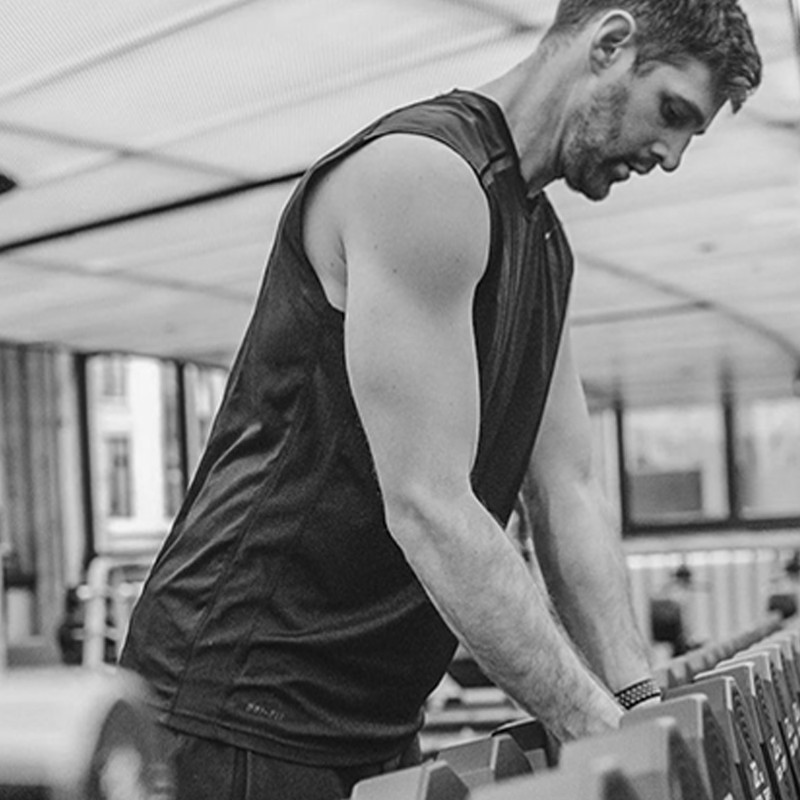How To Be Fit At Any Age
In Your 30s…
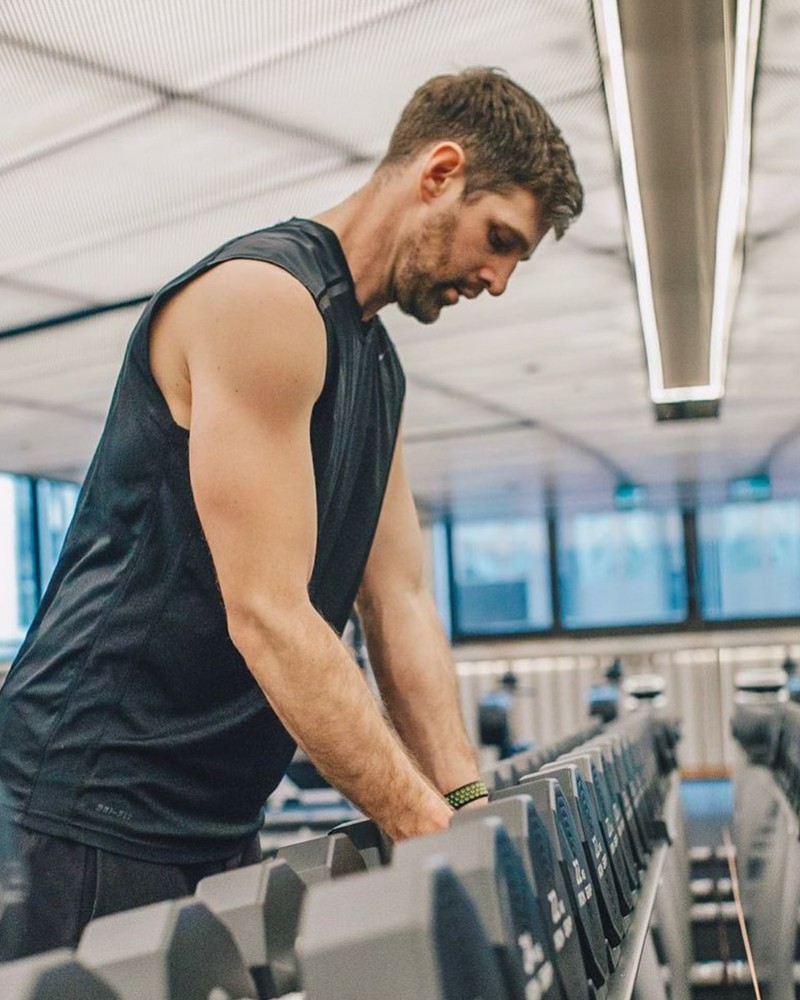
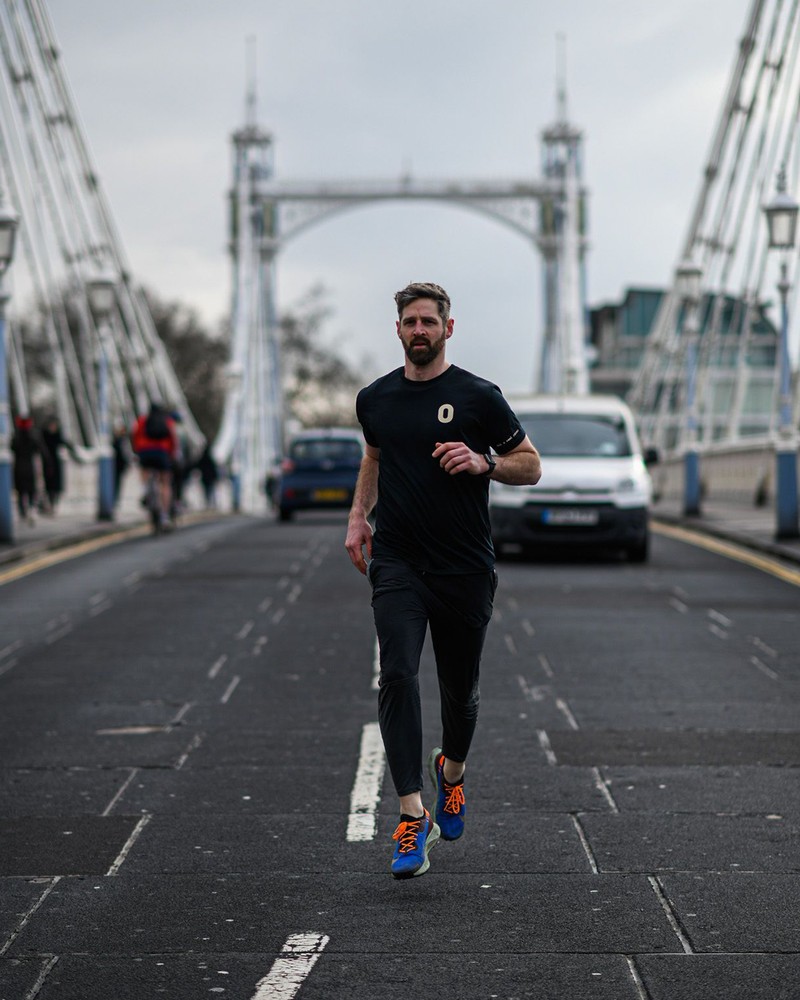
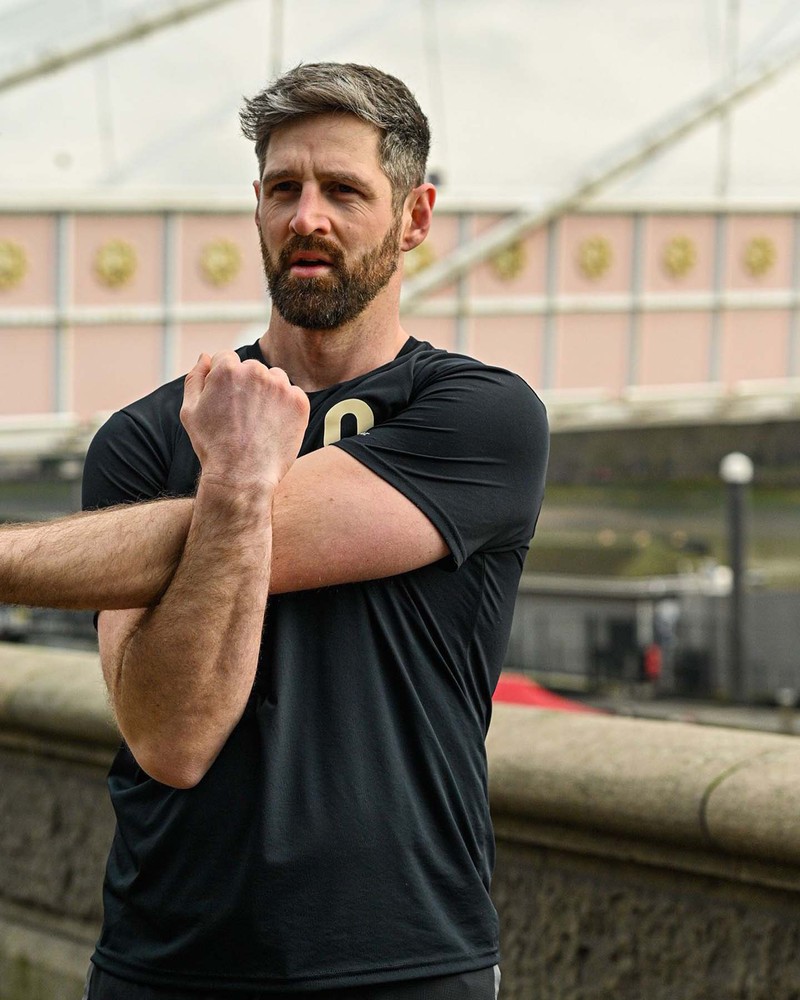
Anthony Fletcher
36, Founder & Coach At One Track
Know your version of healthy. When I was 14, I was diagnosed with a squamous cell carcinoma in my tongue and was faced with the very real possibility that I might not make it. I was lucky to only go through surgery a few times, but it was enough to scare the wits out of me. It’s a dark cloud that always follows me, as the chances that I develop cancer again are high. So my version of ‘healthy’ may be very different to yours. Mental, physical and social wellbeing are all listed by the World Health Organisation as markers to be considered. For me, being healthy is prioritising different elements of your wellbeing so that other parts don’t fail.
Be flexible with your training. I used to box and kickbox competitively but now prioritise my energy levels for work and family. Between the ages of 20 and 30, little changes physiologically – there may be some fluctuations in maximum heart rate, oxygen uptake and neural-endocrine function but the biggest change is responsibility. As we age, we take on more time-consuming roles at work or home, or both. Be conscious of your energy levels when training. If you’re stressed at home and work, don’t go so hard in the gym. Training for your wellbeing, taking into consideration your energy levels, will carry you well in your 80s, rather than beasting yourself to get back to where you were in your 20s. Be kind to yourself – it’s easy to beat yourself up about what you used to be like. Accept your priorities have changed.
Listen to your body. There are many athletes that perform at their best in their 30s, especially when it comes to strength sports. At the same time, listen to what your body is telling you. I’m all up for pushing yourself but there are no medals to be won here. Just keep the ball rolling and accept that sometimes less is more.
Don’t sacrifice sleep for fitness. We all know that person who can burn the candle at both ends but drop the comparison game. Get to bed earlier if you have an early start or consider training later in the day. Having two small children, a good night’s sleep can be like Willy Wonka’s golden ticket.
Keep things varied. I advocate a varied approach for complete fitness. I teach virtual strength and mobility sessions throughout the week but also include a couple of runs with the dog when I can as well as separate strength sessions, intervals and mobility. I’d love to get back into boxing this year – I miss the environment as well as the exercise.
Visit OneTrack.club and follow @Aka_Fletch
In Your 40s…
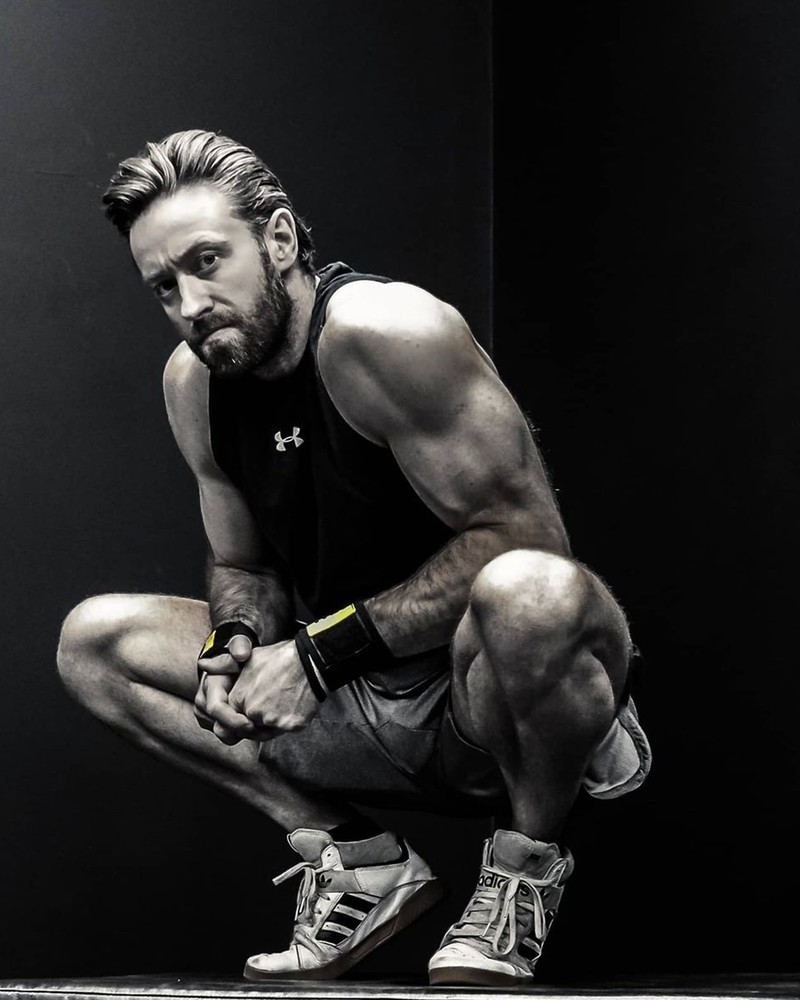
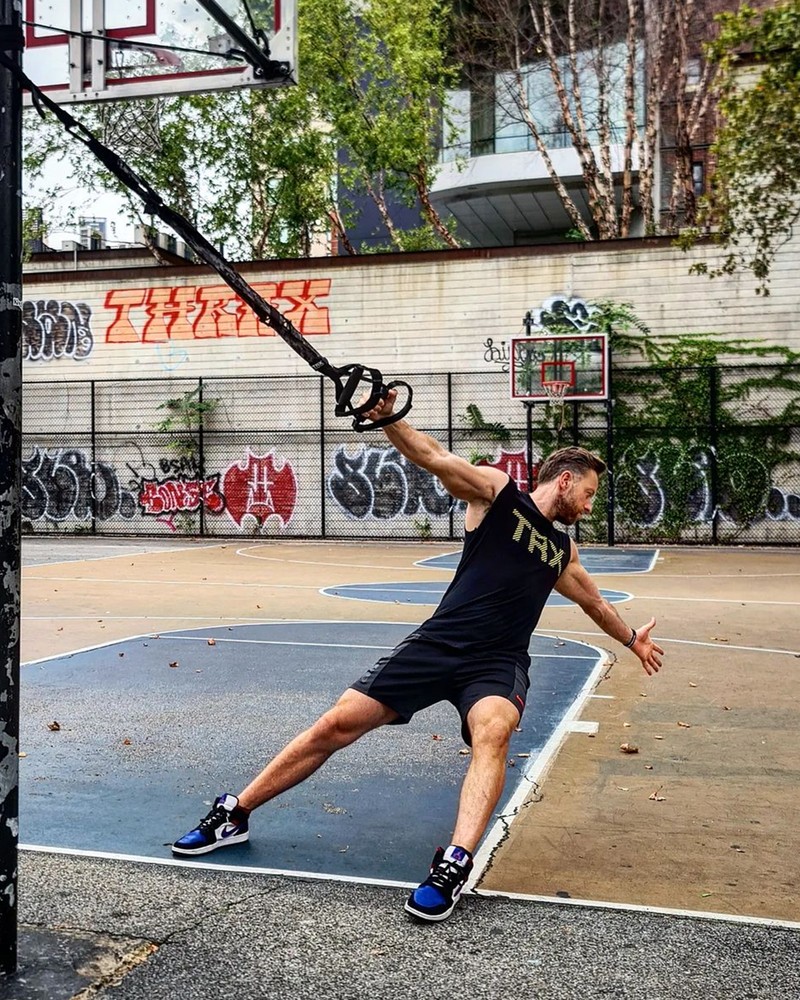
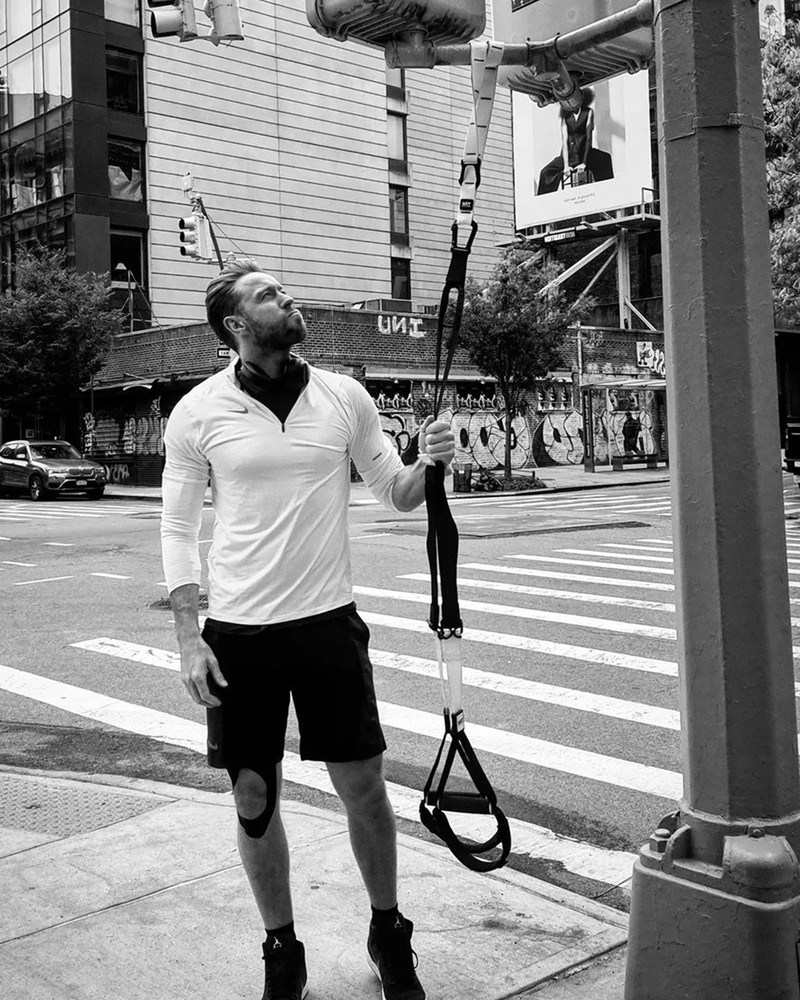
Niko Algieri
40, Director At TRX
Stick with it. I used to be able to take a week off from the gym and bounce straight back. Now, if I have a week off, I feel like I’ve jumped back in time four weeks. From the age of 40, the body produces less testosterone and growth hormone, meaning you’ll have to work harder to maintain your goals and start a little slower than you used to. This doesn’t mean you won’t see results – you’ll just need to be savvy about what you’re doing.
Be smart with your workouts. Even if you’ve always been a gym bunny, that doesn’t make you immune to the effects of ageing. My dad was Mr Wales and second in the world in bodybuilding eight years ago, as well as being a 4th dan black belt in karate. My stepfather used to be a four-time world kickboxing champion and my mum, the real terminator of the piece, was a bodybuilder, brown belt karate, and to this day teaches aerobics at the age of 61. As I hit 40, I’ve realised I need to work extra hard to maintain strength and muscle, and being savvy with your workouts is the secret. Keep things short and sweet – four to five exercises per body part, with 10-15 reps of each and you’re done. Lift heavy at least twice a week but know when enough is enough. If you can feel your technique is faltering, walk away and live to fight another day.
Don’t forget about cardio. Lifting weights is crucial, but don’t discount cardio, which will keep your heart healthy. I keep my lungs and heart strong by hitting a TRX Training Club sweat session or 30 minutes of classic cardio at the end of every session. TRX is a great way to stay in shape. Where traditional training works one muscle at a time, TRX works multiple muscles and joints simultaneously as it relies on your own bodyweight and gravity for power. In short, it’s a killer workout.
Mobility is key. I can physically feel my muscles, tendons and ligaments are a little less elastic these days, making a decent warm-up and cool-down essential.
Think about what’s on your plate. When I was in my 20s, I didn’t give much thought to the nutrition element of fitness, but I realise now it’s half the job. If you want to improve, recover, heal and sleep well, you need to be eating the right foods in the right amounts. In your 40s, these are significant factors for maintaining quality muscle and heart health. I rely mostly on food for nutrients but keep this topped up with supplements – B12, vitamin C, zinc, vitamin D and omegas are daily staples.
Follow @Niko Algieri
In Your 50s…
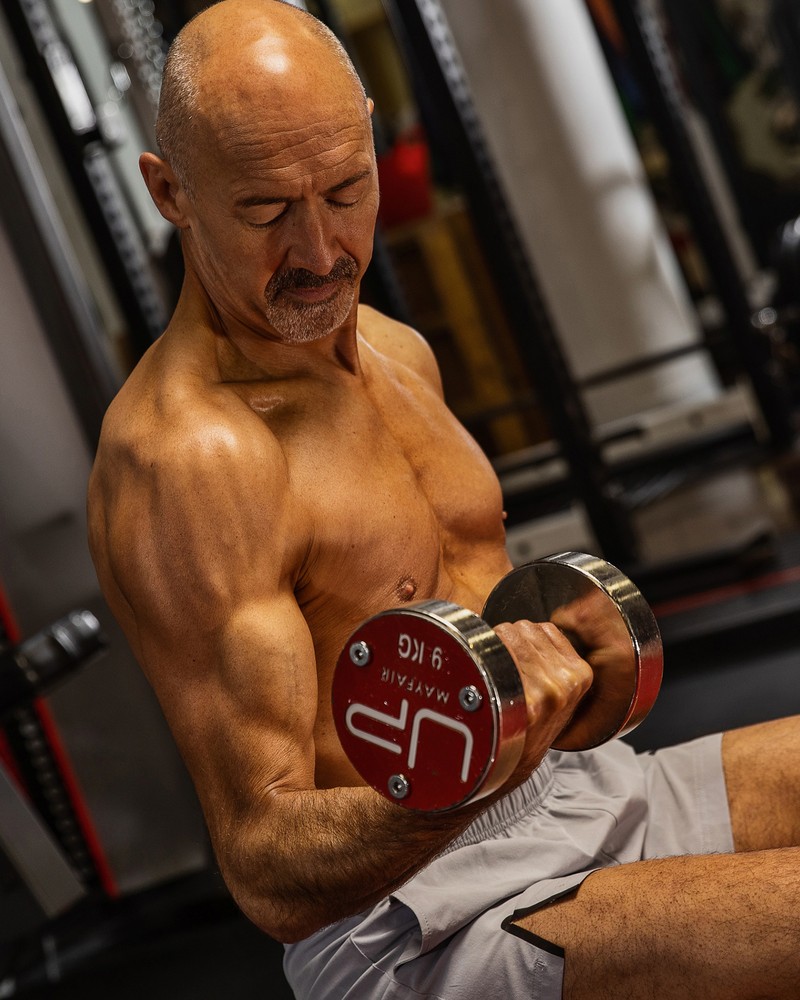
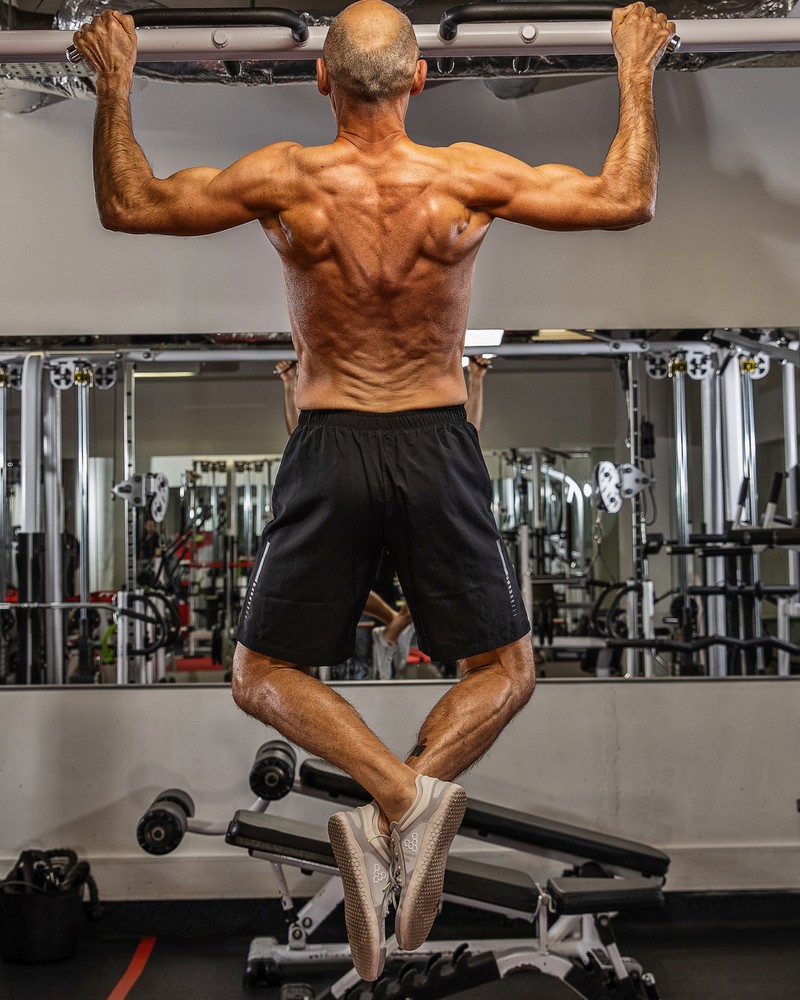
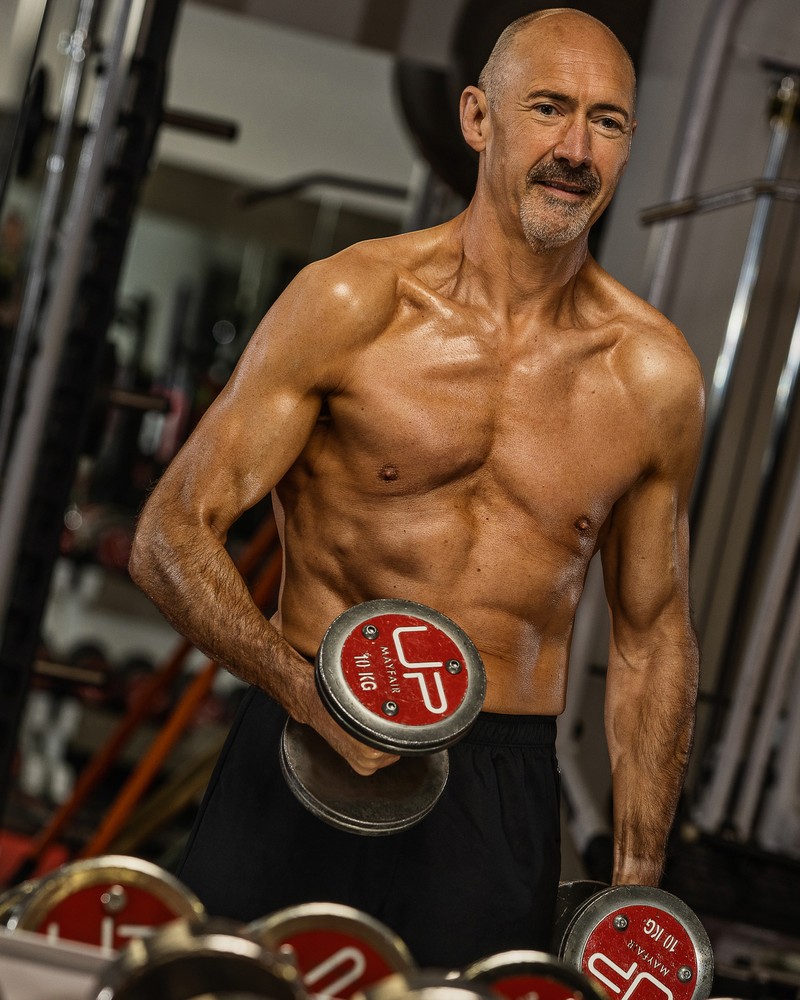
Peter Todd
58, Founder & CEO Of Portus Retail
Find yourself a decent trainer. I was originally inspired to get into shape during the May 2020 lockdown after seeing my girlfriend go through an amazing transformation. I started out at 77kg with 20% body fat and struggled with stress, poor sleep, digestion issues and a niggling shoulder injury. My girlfriend introduced me to Chris Gentile at UP Kensington and he set me a programme of six months of pure resistance training to recalibrate my body. Chris is an incredible trainer and has been instrumental in my fitness journey. I would endorse finding a good trainer if you’re looking to make real changes – they’ll help with goal setting, focus and so much more. Since training with Chris, I’ve lost 8kg.
Swap cardio for strength training. Once I hit 50, I noticed my strength and speed had slowed – whether it was a slower sprint finish on a Park Run or feeling less punchy when racing with friends on a bike hill climb. I’d always been fairly fit, but little by little my shape was changing – too many business lunches and work commitments which made it harder to get to the gym, and over the space of two years from the age of 54 to 56 I gained 7kg and developed a ‘skinny fat’ body. I did some reading and all the credible sources of advice pointed towards resistance training with HIIT cardio, rather than my staple training of endurance-based cardio.
Lifting weights is about more than building muscle. Resistance training has been a revelation – it allowed me to get leaner than I had been since my early 30s; aches and pains from old sports injuries have improved, as has my posture; I sleep better; and it’s helped with my focus and concentration at work. Weights now form the bulk of my training – I do three or four sessions per week of around 50-60 minutes as well as one to two cardio sessions, usually a run with interval or a HIIT class. If I’m short on time, I’ll drop the cardio. On top of this, I try to do at least 10k steps every day.
Planning is important. One of the biggest challenges I’ve noticed about training later in life is that recovery from hard training takes longer, meaning the weeks need planning and balancing. Business travel and work commitments mean that training has to be scheduled at least a week in advance.
Choose quality over quantity. I used to be very goal-oriented when it came to fitness – whether it was training for a run, bike ride or Ironman triathlon. I used to train for these events obsessively, only to burn out and fall off the training programme, slip into poor diet and nutrition habits, and yo-yo back and forth between feeling virtuous and guilty. I now base my plans around longer-term goals that allow for a more sustainable approach – for example, if I know I’m in the middle of a major work transaction, I’ll adjust my training volumes and goals. It’s all about finding balance.
Be consistent. Keep it simple and the results will follow. There will always be a busy time, a bad week or an important social event, but roll with it and get back to your targets and training. Keep chipping away at the iceberg. Staying on track when I travel is also important – I travel two to three times a month and it comes down to being organised. Plan your trip and meetings in good time, find a hotel with a decent gym or close to a park. Make good diet choices at client dinners, avoid or restrict alcohol and, if your agenda is tight, do a 30-minute HIIT session instead of writing off that day.
Don’t forget about diet. When strength training, it’s important to also prioritise good quality nutrition, not relying on supplements and having a healthy relationship with your diet. One meal, or a day with less than optimum food choices and alcohol isn’t the end of the world, but don’t let an indulgent weekend ruin an entire week.
The right supplements can help. I take vitamins and herbal remedies daily, primarily aimed at boosting immunity – a multivitamin, zinc, vitamin D, fish oil and magnesium. I also take ashwagandha, an adaptogen that can help naturally boost testosterone, which is helpful for older men; and turmeric, which can help reduce inflammation.
Set goals. My weight is still around 4kg over my target, so I intend to work on that in the new year and further my strength gains. I’m going to be 60 in 18 months, and the goal is to bench press 75kg and deadlift 150kg before 2022 is out. My son has also challenged me to run a half marathon with him this year, with a target time of 90 minutes, so I’ll need to work more cardio into the programme and dust off my running shoes.
Visit UltimatePerformance.com
DISCLAIMER: We endeavour to always credit the correct original source of every image we use. If you think a credit may be incorrect, please contact us at [email protected].
